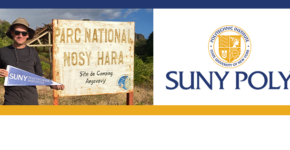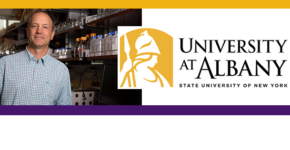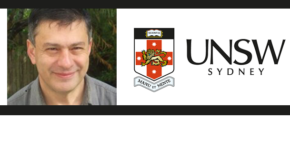Tag: Biology
-

Kimberly Rosvall, Indiana University Bloomington – What Can We Expect Animals to do During a Solar Eclipse?
On Indiana University’s Total Solar Eclipse Week: How will migrating birds treat the solar eclipse? Kimberly Rosvall, associate professor of biology, asks for help in finding out. Kimberly Rosvall is an Associate Professor in the Department of Biology at Indiana University Bloomington. She is also affiliated with IU’s internationally-recognized Program in Animal Behavior. Rosvall’s overarching…
-

Keith Hengen, Washington University St. Louis – Sleep Resets the Brain’s Operating System
Why do we need to sleep? Keith Hengen, assistant professor in the department of biology at Washington University in St. Louis, delves into our brain to find the answer. Keith Hengen was born and raised in Concord, NH, and was first introduced to neuroscience at Bates College. From there, Keith went directly to grad school…
-

Karolina Fucikova, Assumption University – A Genetically Unique Green Alga Discovered in the California Desert
On Assumption University Week: Deserts aren’t dead and there are still discoveries to be made in them. Karolina Fucikova, associate professor of biology, tells us of one. Karolina Fučíková is a biologist interested in the biodiversity, ecology and evolution of microscopic algae. She obtained her PhD at the University of Connecticut in 2011 and has…
-

Ahyeon Koh, Binghamton University – Health Information Collected Through Sweat
Are you sweating right now? Ahyeon Koh, associate professor in the Thomas J. Watson College of Engineering and Applied Science at Binghamton University, collects perspiration to track our health. Dr. Koh is currently an associate professor at the Binghamton University Thomas J. Watson College of Engineering and Applied Science. Her research focuses on overcoming obstacles…
-

Stefan Lovgren, University of Nevada Reno – Saving the River Giants
Large marine life doesn’t just live in the world’s oceans. Stefan Lovgren, research scientist in the college of science at the University of Nevada Reno, looks into protecting the river giants. Stefan Lovgren is a research scientist in the College of Science at the University of Nevada Reno, as well as the communications director of…
-

Austin Garner, Syracuse University – Sea Urchins Can’t “Get a Grip” on Climate Change
Climate change will affect everything, even the smallest creatures. Austin Garner, assistant professor in the department of biology at Syracuse University, discusses one. Austin M. Garner is an Assistant Professor in the Department of Biology and BioInspired Institute at Syracuse University. His research focuses on how animals interface with their environment with a particular focus…
-

Adam McLain, SUNY Polytechnic Institute – Nosy Hara Dwarf Lemurs
On SUNY Polytechnic Institute Week: The natural world still holds many secrets. Adam McLain, associate professor of biology, travels to Africa to observe one. Dr. Adam T. McLain is an Associate Professor of Biology in the Department of Biology and Chemistry at SUNY Polytechnic Institute in Utica, New York. He joined the faculty at SUNY…
-

John A. Cigliano, Cedar Crest College – Microplastics
Microplastics have become a big problem. John A. Cigliano, professor of biology and director of environmental conservation at Cedar Crest College, explores how they move through the ecosystem. John A. Cigliano, Ph.D., is a professor of biology and director of environmental conservation at Cedar Crest College in Allentown, Pennsylvania. He also serves as an Earthwatch…
-

Andrew Berglund, University at Albany – The Fight Against Myotonic Dystrophy
On University at Albany Week: We still need to find a cure for many afflictions. Andrew Berglund, director of the RNA Institute and professor of biological sciences, details one of these. Dr. Berglund’s scientific career has revolved around understanding the role of RNA in biology. The focus of his research is on neuromuscular diseases with…
-

Robert Nordon, University of New South Wales – Making Blood Stem Cells on a Microchip
Stem cell research can be politically divisive. Robert Nordon, associate professor in the graduate school of biomedical engineering at the University of New South Wales, says a new way of making them may calm debate. I am an Associate Professor in the Graduate School of Biomedical Engineering, University of New South Wales, Sydney. I have…
